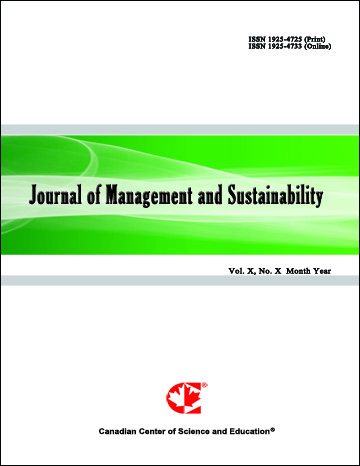Making Healthcare Systems More Efficient and Sustainable in Emerging and Developing Economies Through Disruptive Innovation: The Case of Nigeria
- Ivo Pezzuto
Abstract
This paper focuses on the potential opportunities that disruptive innovation may bring to the healthcare sector of emerging and developing economies, and in particular to the one of the leading Sub-Saharan Africa’s country, Nigeria. The author examines the possibility of using advancements in the innovation of Technology 4.0 to bridge the gap in access to what could be defined as “good enough” healthcare services for poorer regions of the world while also aiming to potentially reduce healthcare costs and making the local healthcare systems more sustainable, productive, and accessible. Nigerian health industry is used as an exploratory case study to examine the feasibility of implementing Mobile Health and Telehealth Systems, and more in general, to assess the potential benefits of disruptive innovations in the healthcare industry for the lower income patients of emerging and developing economies. This analysis on disruptive innovation, industry competitiveness, and sustainability of the healthcare models is inspired by Michael Porter’s Creating Shared Value (CSV) strategic framework (Porter et al., 2011; 2018) and by Clayton Christensen’s Disruptive Innovation Theory (Christensen et al., 1997; 2000; 2004; 2006; 2013; 2015, 2017). This study also aims to provide a compelling argument supporting the thesis that disruptive innovations in the healthcare system can help grant access to critical basic healthcare services in poor regions of the world while also achieving multiple goals such as, sustainability, efficiency, shared-value creation, and corporate profitability for forward-looking firms with scalable and disruptive business models. Ultimately, the paper aims to contribute to the body of knowledge in the field of disruptive innovation, sustainability, and creating shared-value strategies, assessing the feasibility of solutions that may drive to improved competitiveness, social progress, social inclusion, and sustainability of the healthcare industry in one of the developing economies. The results of this study aim to prove that, in the coming years, disruptive innovations are likely to redefine the competitive environment of the healthcare industry and improve the healthcare conditions of the poorer, underserved, and underreached population of developing and emerging economies like Nigeria, thus increasing their life expectancy rates.
- Full Text:
 PDF
PDF
- DOI:10.5539/jms.v9n2p1
Journal Metrics
Google-based Impact Factor (2021): 1.54
h-index (July 2022): 37
i10-index (July 2022): 147
h5-index (2017-2021): 12
h5-median (2017-2021): 19
Index
- Academic Journals Database
- ANVUR (Italian National Agency for the Evaluation of Universities and Research Institutes)
- CAB Abstracts
- CNKI Scholar
- EconBiz
- Excellence in Research for Australia (ERA)
- GETIT@YALE (Yale University Library)
- Harvard Library
- HeinOnline
- Infotrieve
- JournalTOCs
- LOCKSS
- MIAR
- PKP Open Archives Harvester
- RePEc
- Scilit
- SHERPA/RoMEO
- Stanford Libraries
- UCR Library
Contact
- Evelyn XiaoEditorial Assistant
- jms@ccsenet.org
